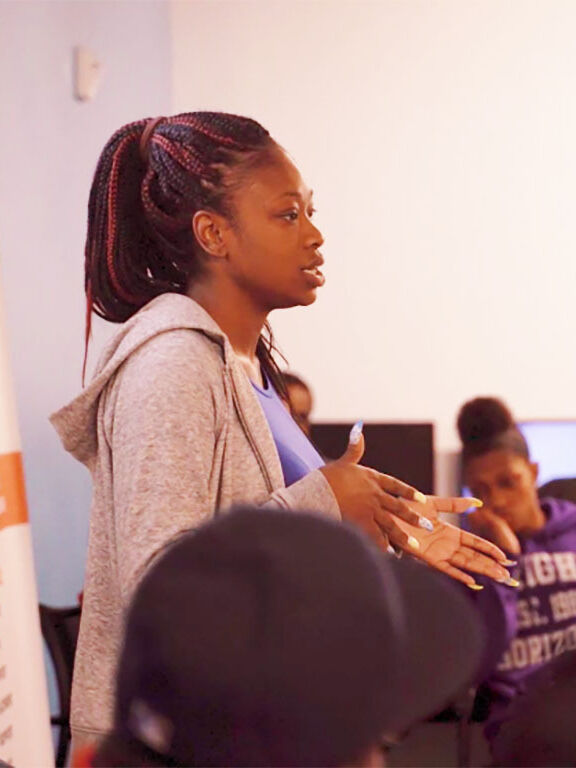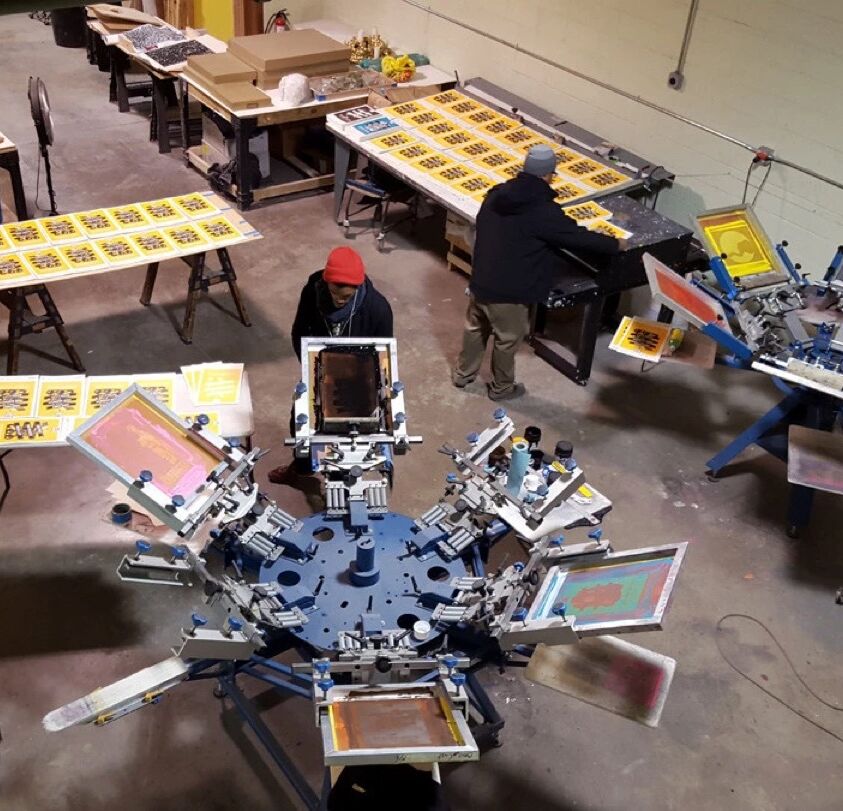Expanding the NYCHA to Tech Pipeline
What does it mean to create pathways into the tech economy for candidates without tech experience or a related degree? How does access to opportunity play out, tactically, within a neighborhood or housing development? The best workforce development initiatives are grounded in place, building skills in tandem with trusted networks for generational wealth creation.

Overview
Understanding the vast potential and resilience of NYCHA residents, Urbane designed and piloted a program in Bed-Stuy to demystify and connect aspring talent to opportunities in the burgeoning tech sector in Brooklyn.
NYC Economic Development Corporation and the Mayor’s Office of Workforce Development
2019
Mixed Method Research
Data Capture and Analysis
Workshop Design and Facilitation
Pilot Design and Implementation

Taking a uniquely place-based approach, Urbane partnered with Bedford Stuyvesant Restoration Corporation (Restoration) to explore pathways into upwardly mobile tech sector jobs for residents of three NYCHA developments in Bed-Stuy: Marcy Houses, Armstrong Houses, and Lafayette Gardens. Through targeted resident workshops and broad stakeholder interviews, the project identified opportunities and local assets to strengthen pathways into the tech workforce, focusing on entry points into the sector that position residents to climb career ladders in a direction of their choosing.
Synopsis
With the rapid expansion of the technology sector in New York City, and especially in Brooklyn, the impetus to support the inclusivity of tech sector employment for underrepresented New Yorkers is more urgent than ever. The City’s tech ecosystem provides a pathway to quality jobs. And if cities are to build tech sectors that leverage the diverse perspectives and full creative power of their residents, it requires attention to geography, culture, and informational networks on a micro scale.
- In 2019, New York City’s Economic Development Corporation (NYCEDC) and the Mayor’s Office of Workforce Development solicited innovative strategies for opening new doors into the tech workforce. Urbane Development was selected along with six other project teams, whose leaders include established workforce development providers and university-based tech programs.
- Urbane conducted 29 interviews with over 40 stakeholders, including providers who offer supportive services and job training – tech or otherwise – to Bed-Stuy NYCHA residents, employers and recruiters from tech-dependent companies who can offer insight into hiring needs and industry demands, and local experts who are deeply familiar with barriers and opportunities unique to Bed-Stuy.
In coordination with Restoration’s resident Community Coaches, Urbane facilitated three consecutive workshops with an intergenerational cohort of over 25 Marcy, Armstrong, and Lafayette residents. The workshops were designed to surface resident perceptions and interests related to tech sector jobs, demystify the sector and its requirements, and support residents in co-designing culturally relevant and accessible tech-focused workforce pathways.
The project revealed a wealth of local resources and best practices as well as clear gaps in the pipelines that connect Bed-Stuy NYCHA residents to tech employment and entrepreneurship. A synthesis of resident input coupled with supplemental research resulted in recommendations for policy makers and program providers seeking to bridge those gaps.
The project also resulted in a set of pilot frameworks for accelerating NYCHA resident inclusion in tech opportunities. Pilots included recurring Tech Workshops to fortify the connection between NYCHA campuses and tech ecosystem resources, a social enterprise model to address NYCHA’s organizational tech needs, as well as a dedicated UX training pathway to leverage unique resident experiences in tech design.
A draft place-based navigator was developed for career counselors who work with NYCHA residents in Bed-Stuy to support residents and providers in leveraging tech sector opportunities to build wealth in their community. The navigator illustrates key touch points and resources on the path to tech sector employment as well as the services and prerequisites associated with each step.


